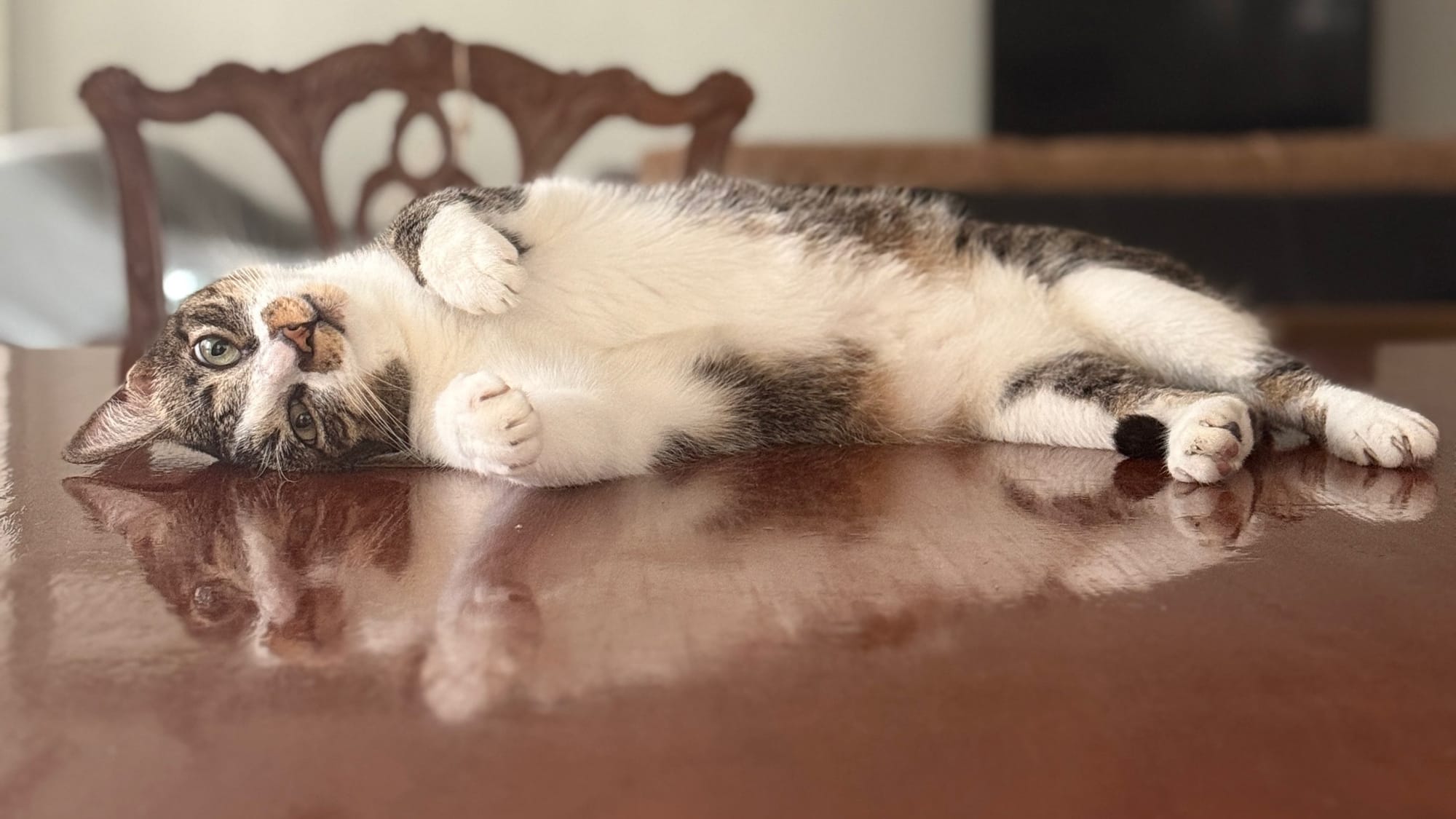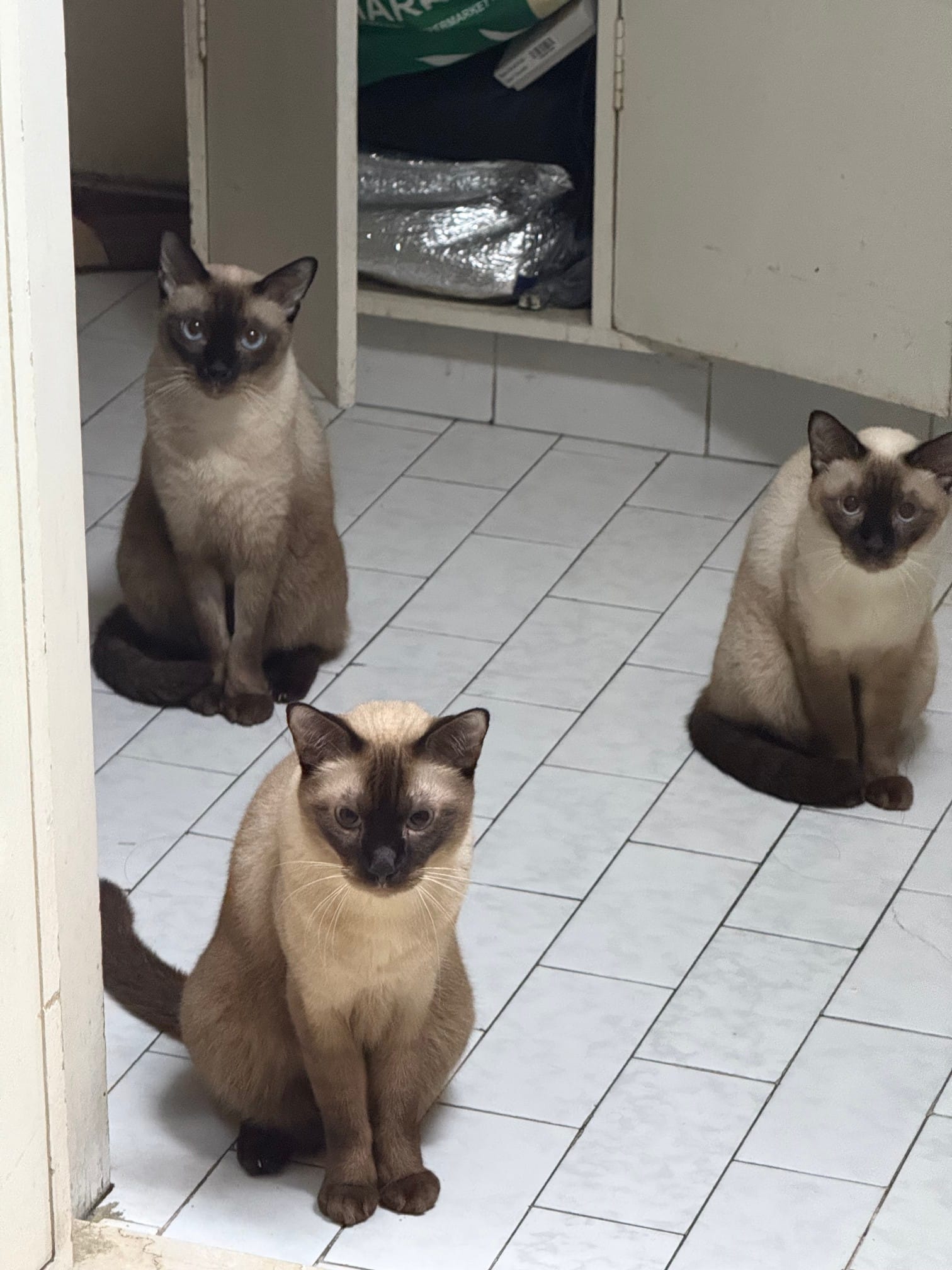Most people acquire cats the way they acquire debt—gradually, then suddenly, with minimal consideration for the long-term psychological implications.
One day, you're a rational adult who owns houseplants. Next, you're photographing a tabby's sleeping positions like a nature documentarian and referring to yourself as "mom" to a creature that would eat your face if you died tomorrow.
This transformation isn't accidental.
Cats have mastered what behavioural economists call "intermittent reinforcement". It’s the same psychological principle that makes slot machines addictive and makes you check your phone every twelve seconds. Your cat's affection arrives unpredictably, making each head bonk or purr session feel like winning a small lottery you didn't know you'd entered.

The Economics of Feline Indifference
Dogs love you unconditionally, which sounds romantic until you realize unconditional love has no market value. It's emotional inflation. A dog's enthusiasm for your return from the bathroom creates the same response as your triumphant arrival home after a two-week vacation.
The currency is worthless because the supply is infinite.
Cats, meanwhile, operate a boutique emotional economy. Their approval must be earned daily through a complex system of proper door-opening timing, acceptable food temperature, and the mysterious art of existing in their vicinity without being too needy.
When a cat chooses your lap over an empty cardboard box, their version of luxury real estate, you've received the feline equivalent of a MacArthur Fellowship.
This scarcity model explains why cat owners develop what psychologists might politely call "Stockholm syndrome with whiskers." We become invested in earning something that wasn't free to begin with.
The cat's indifference isn't a bug; it's the entire operating system.
The Meditation Masters We Never Asked For
Cats spend 12-16 hours daily in what we humans pay $2000 to learn at mindfulness retreats: pure present-moment awareness.
They don't experience Sunday scaries or worry about their retirement funds. A cat watching a dust mote floating in sunlight is the kind of focused attention that would make a Zen master weep with envy.
Living with cats forces you into their temporal reality.
Try rushing past a cat who's decided the hallway is for contemplating the meaning of shadows. Try maintaining your anxiety about tomorrow's presentation while a purring entity vibrates against your chest at frequencies scientifically proven to lower blood pressure.
Cats are involuntary meditation teachers who never charge for the lesson.
My tabby once spent an entire afternoon staring at a spot on the wall where absolutely nothing was happening. I eventually joined her, figuring she'd spotted something I'd missed. We sat together for twenty minutes watching nothing together. It was, strangely, one of the most peaceful afternoons I'd had in a month.
In the kitchen, my three Siamese cats had a lively debate, with lots of dramatic yowling with the volume on 11. These cats don’t just hang out in your space; they hold parliamentary question period in it.

The Emotional Labour of Being Chosen
Dog ownership often feels like managing an enthusiastic employee who never takes a vacation. Cat ownership resembles hosting a sophisticated houseguest who might disappear without notice but occasionally leaves small dead things as thank-you notes.
This dynamic challenges our modern compulsion to earn validation through productivity.
Cats don’t care about your promotion, your workout routine, or your carefully curated social media posts. Their criteria for worthiness operate on a completely different frequency, one that often involves your ability to remain still for extended periods or your skill at opening cans.
There's profound relief in being valued for something other than your achievements. In a culture that commodifies every human interaction, cats offer relationships based on inexplicable preference rather than performance metrics.
Sometimes they like you. Sometimes they don't. The randomness is the point.

The Democracy of Inconvenience
Cats democratize domestic chaos, revealing uncomfortable truths about control.
Cats can't be trained the way you can train a dog, because cats understand cooperation is a choice, not an obligation. They'll use a litter box because it makes sense, not because you've established dominance through alpha rolling or treat dispensing.
The forced acceptance of another being's autonomy within your space creates an unexpected form of personal growth.
You learn to negotiate rather than dominate. You develop patience not through spiritual practice but through living with a creature who views your schedule as a mild suggestion at best.
The cat hair that infiltrates every surface despite your best efforts becomes a metaphor for the illusion of control in general. You can lint-roll your life obsessively, but nature finds a way.
Learning to coexist with feline chaos prepares you for the larger chaos of existence itself.
The Intimacy of Mutual Weirdness
The deepest joy in cat ownership lies in the permission to be authentically strange together.
Cats have no social expectations of what’s normal human behaviour. They don't judge you for talking in voices you'd be mortified for colleagues to hear, or for having entire conversations they're pretending not to understand.
This relationship becomes a laboratory for practicing unconditional self-acceptance.
If you can love a creature that knocks plants off windowsills for sport and presents you with semi-dead mice as tokens of affection, you can eventually extend similar grace to your own peculiarities.
The joy of cats isn't found in their cuteness or companionship, though both exist.
It emerges from their radical refusal to conform to human emotional expectations while simultaneously creating space for you to be equally uncompromising. They teach presence through their mastery of it, offer lessons in boundaries through their enforcement of them, and provide a masterclass in self-acceptance through their complete lack of self-consciousness.
In a world increasingly designed to extract your attention and monetize your insecurities, cats remain magnificently, stubbornly useless for anything except being exactly what they are.
This uselessness, it turns out, might be the most useful thing of all.


